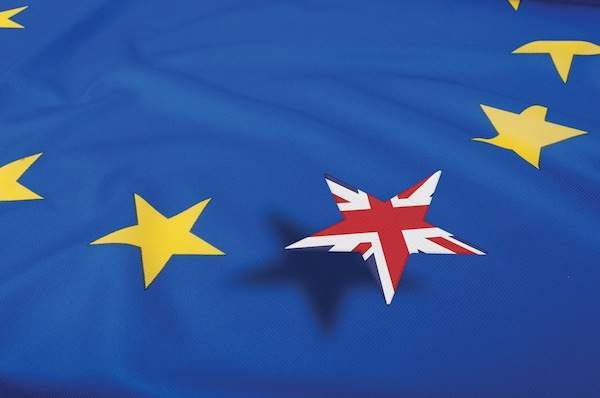
Although the deadline for withdrawal from the EU has been extended to April 12, a no-deal Brexit remains a possibility for the UK, raising questions over how it will trade electricity moving forward.
According to The Department for Business, Energy & Industrial Strategy (BEIS), European energy law will no longer apply to the UK and its electricity markets will be decoupled from the Internal Energy Market should the country leave the bloc without a deal.
EU legislation will no longer govern cross-border flows across electricity interconnectors, meaning its regulators and those in Britain will need to ensure new access rules are in place, according to the government body.
“If the UK leaves the EU without a deal, a temporary tariff regime will be implemented,” its document read.
“This would apply for up to 12 months while a full consultation, and review on a permanent approach, is undertaken.
“Under the temporary tariff regime, imports of electrical energy into the UK would be eligible for tariff-free access.
“The government will continue the process of laying statutory instruments to ensure the UK’s energy laws continue to work after 12 April 2019.”
How will UK electricity trading be impacted by a no-deal Brexit?
BEIS said the UK government is working with the country’s regulator Ofgem and National Grid to ensure continuity of supply in the event of a no-deal Brexit.
“Consumers need to take no action, but trade on interconnectors will be less efficient,” it wrote.
In Northern Ireland, no-deal would mean EU rules cease to apply, leaving key elements of the Single Electricity Market, which governs trade and cross-border activity with the UK, without legal basis.
Should this come to pass, Northern Ireland’s Utility Regulator and its system operator SONI will take action to mitigate any local issues.

BEIS’ document read: “Government or the Northern Ireland Utility Regulator will act to seek to ensure adequate generation capacity is in place, as far as possible through a competitive procurement process involving existing generation and new generation investment alongside demand side measures.
“Government will use existing, energy-related legal powers where available and maintain market operation as far as possible, however, it may be necessary to seek additional powers to preserve security of supply.
“Government will work with industry and the Irish government to move as quickly as possible to a settled long-term state supported by sufficient levels of generation and interconnection to deliver long term energy needs.”
What action should businesses take in the event of a no-deal Brexit?
BEIS advises interconnectors, code administrators and UK market participants to carry out their own contingency planning for a no-deal Brexit scenario, and makes the following recommendations:
- Interconnector owners/operators will need to continue to work with their stakeholders and regulators to prepare alternative trading arrangements and updated rules.
- Interconnector owners/operators will need to continue to engage with the relevant EU national regulators to understand their processes for the potential reassessment of their Transmission System Operator certifications.
- The administrators of the various domestic industry codes (the technical rules of the domestic electricity system) will need to work with relevant industry parties to ensure that the codes are updated.
- UK market participants will need to register under REMIT with an EU regulatory authority for the purposes of market monitoring to avoid a disruption to cross-border trade, trade within EU wholesale energy markets, or trade within the Single Electricity Market.
- UK Market participants should undertake the actions set out in Ofgem’s open letter of 4 December to ensure they are registered under REMIT with an EU regulatory authority and with Ofgem.
- Northern Ireland market participants should take the actions as outlined within the Northern Ireland Utility Regulator’s open letter on REMIT.
- In Northern Ireland, electricity market participants should continue using the Single Electricity Market processes and arrangements.
- However, market participants should be aware of the risk that the Single Electricity Market may not be able to continue, in which case government and the Northern Ireland Utility Regulator will take action to seek to ensure continued security of supply and market stability.
- Market participants should engage with their Regulatory Authority where their preparations identify significant concerns.
- Market participants should also check the status of contracts, and licences held in EU member states, which may be impacted by the UK’s departure from the EU.






